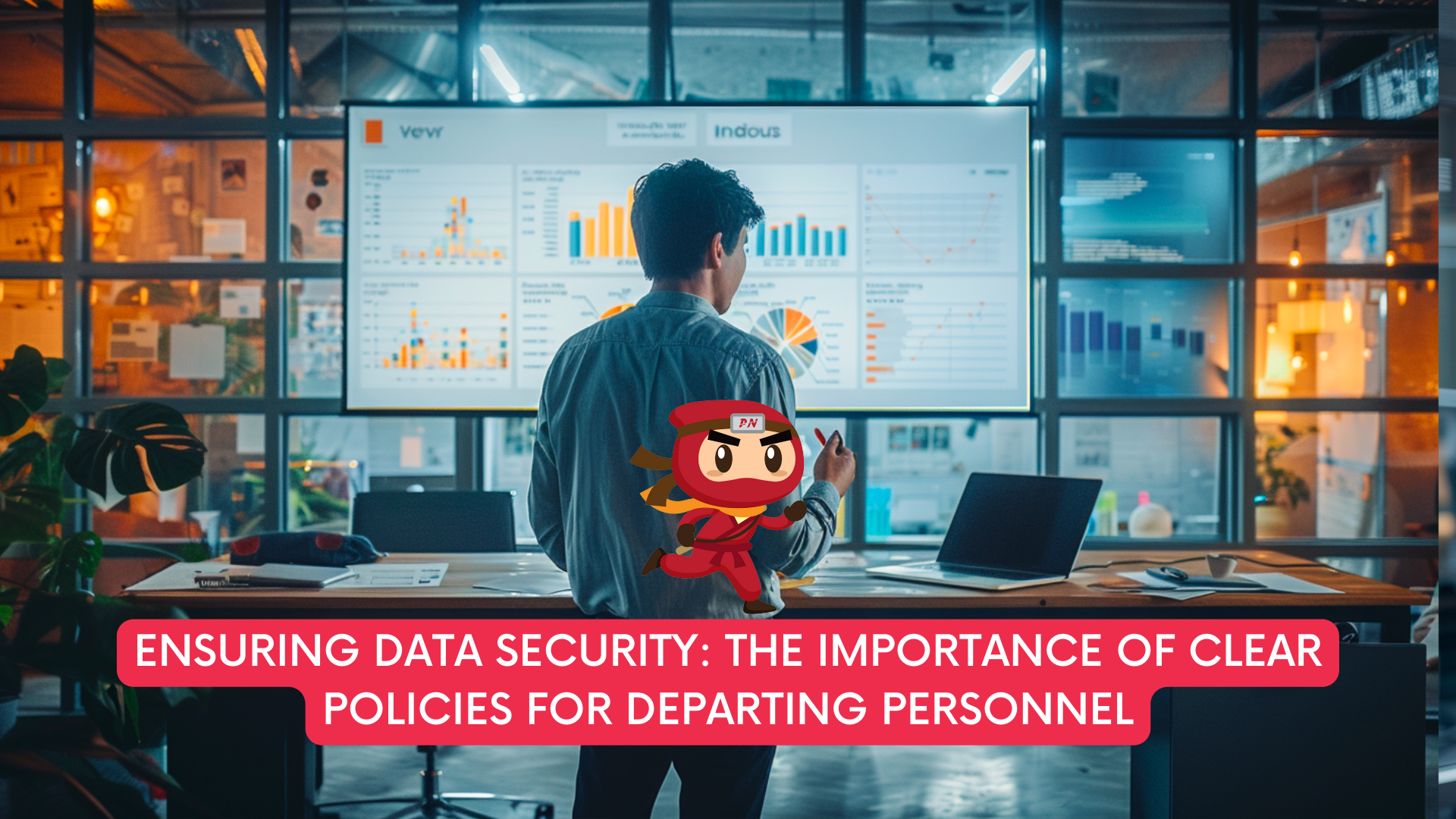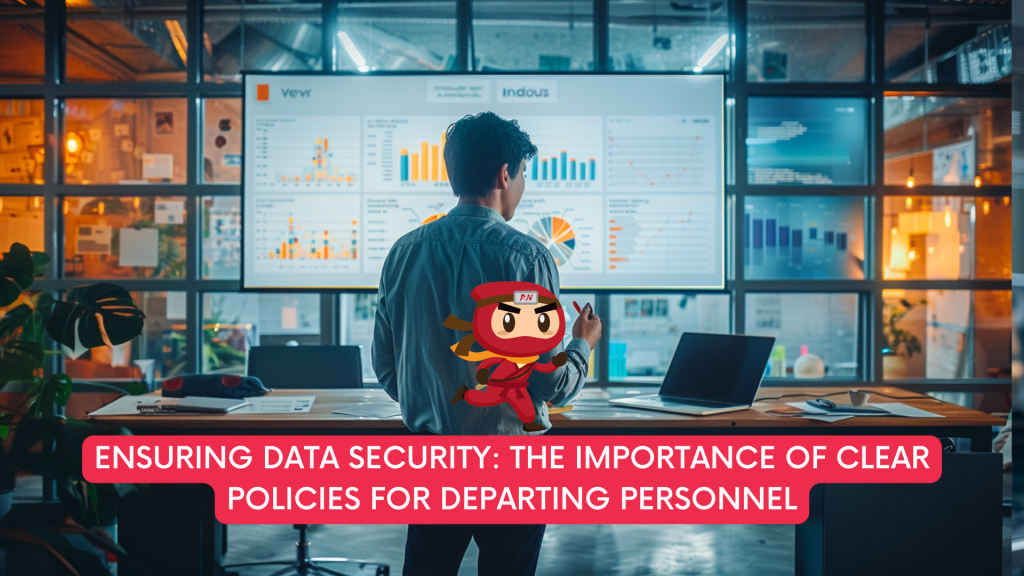KEEP IN TOUCH
Subscribe to our mailing list to get free tips on Data Protection and Cybersecurity updates weekly!







In today’s digitally-driven world, where personal data is a valuable asset, ensuring its security is paramount for organizations. Implementing a clear policy for departing personnel handling personal data is imperative. This framework guarantees a seamless transition, enabling the successor to effectively safeguard the integrity of personal data.
Departing personnel pose a significant risk to data security if not handled properly. Whether due to resignation, termination, or any other reason, employees leaving an organization may have access to sensitive personal data. Without a clear policy in place, there’s a risk of data breaches, misuse, or unauthorized access.
A comprehensive policy outlines the steps and protocols to be followed when an employee departs, ensuring that personal data remains protected throughout the transition process. It provides clarity to both departing employees and their successors, minimizing confusion and reducing the likelihood of security incidents.

A well-defined policy for departing personnel typically includes several key components. First and foremost, it outlines the procedures for revoking access to systems, databases, and other repositories of personal data. This ensures that departing employees no longer have the ability to access or manipulate sensitive information after their departure.
Moreover, the policy should mandate the return or deletion of any company-owned devices or materials containing personal data. This may include laptops, mobile phones, USB drives, or any other storage devices. By retrieving such devices, the organization mitigates the risk of data leakage or unauthorized access.
One of the primary objectives of implementing a clear policy for departing personnel is to empower their successors to uphold data integrity. This involves providing comprehensive training and guidance on handling personal data in accordance with organizational policies and regulatory requirements.
By equipping successors with the necessary knowledge and tools, organizations ensure a smooth transition while maintaining the security and confidentiality of personal data. Additionally, the policy may specify the need for periodic reviews and audits to ensure compliance and identify any potential gaps in data protection measures.
In today’s regulatory environment, compliance with data protection laws like the PDPA is non-negotiable. A clear policy for departing personnel demonstrates the organization’s commitment to fulfilling its obligations under the PDPA. By adhering to regulatory standards, organizations not only avoid penalties but also build trust with stakeholders and enhance their reputation.
By aligning with regulatory requirements, organizations not only mitigate the risk of penalties and fines but also build trust and credibility with stakeholders, including customers, partners, and regulatory authorities. It showcases a proactive approach to data protection, which is essential in today’s privacy-conscious landscape.
As technology evolves and new threats emerge, the landscape of data security is constantly evolving. Therefore, organizations must adopt a mindset of continuous improvement and adaptation when it comes to their policies and procedures for departing personnel.
Regularly reviewing and updating the policy ensures that it remains relevant and effective in addressing emerging challenges and changing regulatory requirements. Additionally, conducting training and awareness programs helps reinforce the importance of data security among employees and fosters a culture of vigilance and accountability.

In conclusion, implementing a clear policy for departing personnel handling personal data is not just a good practice—it’s a necessity in today’s data-driven world. By establishing a framework for seamless transition, empowering successors for data integrity, ensuring compliance with regulatory standards, and fostering a culture of continuous improvement, organizations can effectively safeguard the confidentiality, integrity, and availability of personal data. As data continues to play a pivotal role in business operations, prioritizing its security should be a top priority for every organization.
Your appointed DPO can work with you on your PDPA compliance, ensuring that there will be policies in place to make sure that the handling of personal data is PDPA compliant.
A Data Protection Officer (DPO) oversees data protection responsibilities and ensures that organisations comply with the Personal Data Protection Act (PDPA). Furthermore, every Organisation’s DPO should be able to curb any instances of PDPA noncompliance as it is the officer responsible for maintaining the positive posture of an organisation’s cybersecurity.
DPOs complement organisations’ efforts to ensure that the organisation’s methods of collecting personal data comply with the PDPA. It also ensures that policies are set in place to make sure that there will be no instances of data breaches in the future.
Don’t wait any longer to ensure your organisation is PDPA compliant. Take our free 3-minute PDPA Compliance Self-audit checklist now, the same “secret weapon” used by our clients to keep them on track. Upon completion, we will send you the results so you can take the necessary action to protect your customers’ data. Complete the free assessment checklist today and take the first step towards protecting your customers’ personal data.